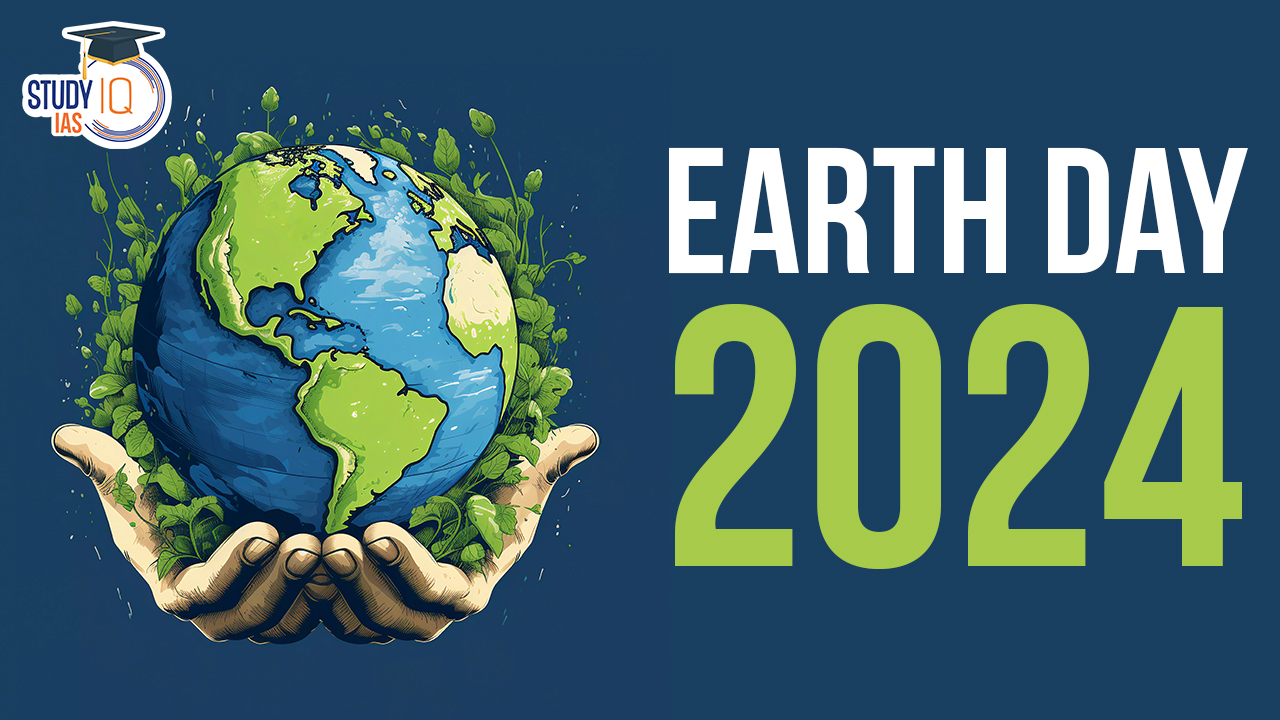Table of Contents
World Earth Day, also known as International Mother Earth Day, is a globally recognised event dedicated to raising awareness and promoting the sustainability of our planet. Earth Day 2024 is being celebrated worldwide, Know all about Earth Day in this article.
Earth Day 2024
Earth Day is an annual event celebrated on April 22nd to raise awareness and support for environmental protection and conservation. Earth Day serves as a reminder of the importance of protecting the planet’s natural resources and reducing our impact on the environment. The theme for Earth Day 2024 is “Planet vs. Plastics .” This theme emphasizes the need for collective action to repair and heal the planet’s ecosystems, combat climate change, and preserve biodiversity.
Earth Day 2024 Theme
The theme for Earth Day 2024, as announced by EARTHDAY.ORG, is ‘Planet vs. Plastics.’ This theme underscores the urgent need to address the environmental crisis posed by plastic pollution. Globally, over 380 million tonnes of plastic trash are produced annually, with a significant portion ending up in landfills, oceans, and waterways, threatening ecosystems and human health.
The goal of ‘Planet vs. Plastics’ is to advocate for a plastic-free future by demanding a 60% reduction in plastic production by 2040. EARTHDAY.ORG has outlined key objectives to achieve this, including promoting public awareness of the harm caused by plastics, phasing out single-use plastics by 2030, demanding policy changes in industries like fast fashion, and investing in innovative technologies for a plastic-free world.
Earth Day History
The story behind Earth Day dates back to 1970 when a U.S. Senator named Gaylord Nelson had an idea to raise awareness about environmental issues. Senator Nelson was inspired to act after witnessing the devastating effects of an oil spill off the coast of California in 1969, and he believed that public awareness and education could help bring about change.
| Year | Event |
|---|---|
| 1970 | U.S. Senator Gaylord Nelson proposes Earth Day idea after witnessing 1969 California oil spill effects. |
| 1970, April 22 | First Earth Day held, featuring nationwide “teach-ins” on environmental issues. |
| 1970 | Massive participation: estimated 20 million Americans join events across the U.S. |
| 1970 | Earth Day movement contributes to the establishment of the Environmental Protection Agency (EPA). |
| 1970 | Landmark environmental legislation was enacted, including the Clean Air Act and Clean Water Act. |
| Present | Earth Day has evolved into a global movement advocating for a sustainable future. |
Earth Day 2024 Celebration
- Community Events: Tree plantings, beach clean-ups, eco-fairs, and sustainability workshops engage people of all ages.
- Corporate Initiatives: Businesses launch green initiatives, reduce plastic packaging, and support renewable energy projects.
- Institutional Efforts: Universities host sustainability symposiums, research showcases, and campus clean-up events.
- Digital Engagement: Social media campaigns, online petitions, and virtual events amplify awareness and advocacy efforts.
- Individual Actions: Reduce plastic consumption, conserve energy, support eco-friendly businesses, and advocate for policy changes.
- Collective Impact: Earth Day reminds us of our shared responsibility in protecting the planet and creating a sustainable future.
- Conclusion: Let’s celebrate Earth Day 2024 by renewing our commitment to environmental stewardship and embracing sustainable practices for a healthier planet.
Earth Day Significance
There is various Significance to celebrating Earth Day every year in the world. Here we provide you with some ways to invest in our planet including:
Supporting Renewable Energy
Investing in renewable energy sources such as solar, wind, and hydro power can reduce our reliance on fossil fuels and help combat climate change.
Protecting Wildlife and Ecosystems
Conserving and restoring wildlife habitats and ecosystems can help maintain biodiversity and promote the health of the natural world.
Reducing Waste
Reducing waste through practices such as recycling, composting, and reducing plastic use can help reduce pollution and conserve resources.
Supporting Sustainable Agriculture
Promoting sustainable farming practices can help protect soil health, reduce water use, and promote biodiversity.
Advocating for Environmental Policy
Supporting policies and initiatives that promote environmental protection and conservation, such as carbon pricing and wildlife conservation programs, can help ensure a sustainable future for the planet.


 Gender Gap in Household Chores Persists ...
Gender Gap in Household Chores Persists ...
 India’s Nuclear Energy Strategy, Futur...
India’s Nuclear Energy Strategy, Futur...
 Daily Quiz 01 April 2025
Daily Quiz 01 April 2025





















